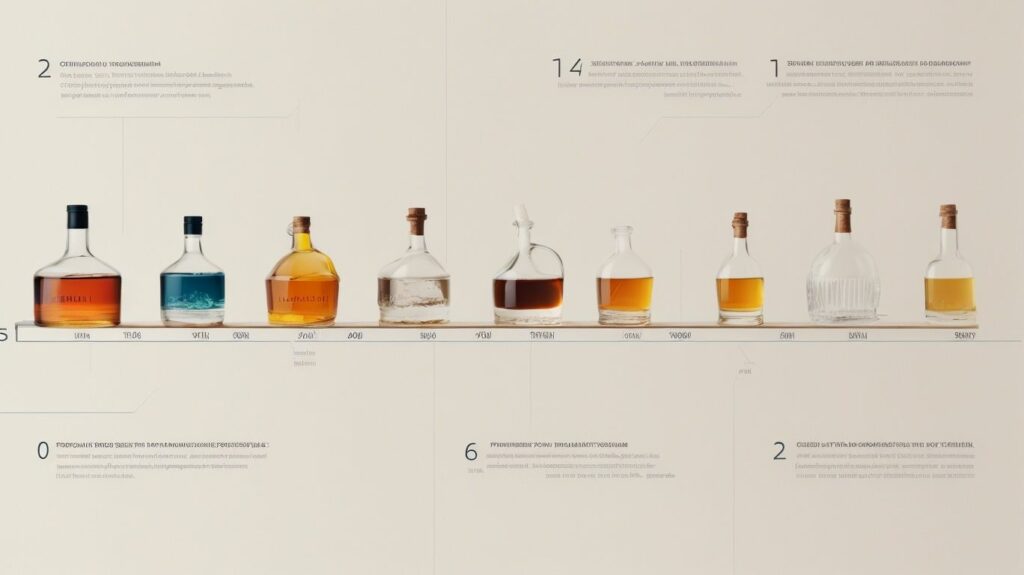20+ Years Experience
Specialist Alcohol Help

Enquire Today For A Free No Obligation Quote
Alcohol is a commonly consumed substance, usually in the form of beverages such as beer, wine, and spirits. It is a depressant that affects the central nervous system, altering brain function and behaviour.
While moderate alcohol consumption can have some potential health benefits, excessive and long-term use can lead to harmful effects on the body. This is especially true for older adults, as aging can make them more vulnerable to the negative effects of alcohol.
The short-term effects of alcohol include impairments in coordination, judgement, and reaction time, as well as changes in mood and behaviour.
These effects can increase the risk of accidents and injuries, particularly for older adults who may already have age-related limitations. In the long term, excessive alcohol consumption can lead to serious health problems such as liver damage, heart disease, and certain types of cancer.
For older adults, there are specific risks associated with alcohol consumption. Physically, alcohol can worsen existing health conditions and increase the risk of falls and injuries. Mentally, it can contribute to memory loss, dementia, and depression. Socially, it can lead to isolation, financial problems, and strained relationships with loved ones.
Alcohol also has specific effects on ageing. It can accelerate the ageing process, leading to cognitive decline, physical frailty, and other adverse health outcomes. This is due to the combined effects of alcohol on the brain, heart, liver, and other vital organs.
Some warning signs of alcohol abuse in older adults include increased tolerance, withdrawal symptoms, and secretive or defensive behaviour. Loved ones must monitor their older family members’ alcohol consumption and look out for these signs.
To manage alcohol consumption in older adults, it is essential to follow recommended guidelines for safe alcohol intake, which include no more than one standard drink per day for women and two for men. Moderation is key, and tips such as alternating alcoholic drinks with non-alcoholic ones and avoiding drinking alone can help.
For those struggling with alcohol abuse, there are resources available such as support groups, counselling services, and treatment programs specifically designed for older adults. Seeking help and making necessary lifestyle changes can improve the overall health and well-being of older adults.
Alcohol, also known as ethanol, is a psychoactive substance commonly found in beverages like beer, wine, and spirits.
It is produced through the fermentation of grains, fruits, or other sources of sugar. Ethanol is known for its depressant effects on the central nervous system, leading to a range of physiological and cognitive changes.
Understanding what alcohol is is crucial for making informed decisions and promoting responsible consumption.
Alcohol affects the body through the following:
Short-term effects of alcohol include impaired coordination, slurred speech, and altered perception.
These effects can lead to accidents, injuries, and risky behaviours. Additionally, alcohol can cause dehydration, headaches, and nausea. It can also affect decision-making and judgement.
Despite being legal and socially acceptable, alcohol consumption can have significant immediate impacts on the body and mind.
The long-term effects of alcohol consumption include increased risk of liver disease, cardiovascular problems, and neurological damage. Prolonged alcohol use can lead to liver cirrhosis, heart disease, and cognitive impairment.
Additionally, chronic alcohol consumption may result in alcohol dependence and addiction, leading to social and emotional consequences. It’s crucial to recognise these potential long-term effects and seek professional help if needed.
Alcohol consumption in older adults poses various risks, including increased susceptibility to falls, cognitive impairment, and medication interactions.
Excessive drinking can lead to liver damage, heart problems, and exacerbation of age-related health issues. Additionally, older adults may experience heightened sensitivity to alcohol’s effects due to age-related changes in metabolism and body composition.
Alcohol consumption in older adults poses physical risks such as liver damage, increased risk of cancer, heart complications, weakened immune system, and osteoporosis. These risks can exacerbate existing health conditions and lead to a decline in overall well-being.
To mitigate these risks, older adults should adhere to recommended alcohol consumption guidelines, seek medical advice, and engage in activities that promote physical health, such as regular exercise and a balanced diet.
The mental risks of alcohol consumption for older adults encompass increased susceptibility to depression, anxiety, and cognitive decline.
Chronic alcohol use may exacerbate existing mental health conditions, impair decision-making abilities, and lead to social isolation and deteriorating relationships.
Social risks of alcohol consumption for older adults encompass increased isolation, strained relationships, and impaired social functioning.
Excessive drinking can lead to withdrawal from social activities and community involvement, causing loneliness and emotional distress. It can also strain relationships with family and friends due to behavioural changes and communication difficulties.
To manage these risks, fostering open communication, seeking social support, and engaging in non-alcohol-related social activities are crucial.
There are various ways alcohol can affect aging, including:
The effects of alcohol on brain function can be harmful, affecting cognitive abilities and memory.
Persistent alcohol use can cause conditions such as Wernicke-Korsakoff syndrome, leading to severe memory loss and confusion. In addition, alcohol can disrupt neurotransmitters, affecting mood and behaviour.
Long-term heavy drinking can result in brain shrinkage and an increased risk of dementia.
Alcohol can have various effects on physical health, including liver damage, heart problems, weakened immune system, and increased risk of certain cancers. It can also lead to malnutrition, digestive issues, and dehydration.
To minimise these effects, older adults should adhere to recommended alcohol consumption guidelines, maintain a balanced diet, stay hydrated, and engage in regular physical activity.
Alcohol can have significant effects on mental health. It can lead to increased anxiety, depression, and mood disorders. Additionally, long-term alcohol use can impair cognitive function and exacerbate existing mental health conditions.
It’s crucial to seek professional help if you or a loved one is experiencing mental health challenges due to alcohol consumption. Encouraging open communication and providing support are essential in addressing these issues.
The warning signs of alcohol abuse in older adults include:
Recommended guidelines for safe alcohol consumption suggest up to one drink per day for older adults.
This equates to 12 ounces of beer, 5 ounces of wine, or 1.5 ounces of distilled spirits. It’s crucial to understand and adhere to these limits to safeguard overall health and well-being.
Fact: Moderate alcohol consumption has been associated with a reduced risk of heart disease in some individuals.
To regulate alcohol consumption, think about sipping slowly, drinking water in between, setting restrictions, and being aware of portion sizes. Moreover, keep track of consumption and look for non-alcoholic alternatives.
Were you aware that moderate alcohol consumption could offer some health benefits, such as reducing the risk of heart disease?
For older adults struggling with alcohol abuse, several resources offer help. Support can be found through:
As we age, our bodies change and our major organs, such as the liver and kidneys, may not function as efficiently.
This means that alcohol has a stronger effect on older adults, increasing the risk of health complications. Additionally, older adults may have a decreased sense of balance and impaired motor coordination, increasing the chances of harmful events such as falls.
Alcohol can have negative impacts on various aspects of health, including the risk of orthostasis (low blood pressure upon standing), myopathy (muscle weakness), peripheral neuropathy (nerve damage), and hip fractures.
It can also cause conditions such as alcoholic hepatitis, fatty liver, cirrhosis, hypertension, stroke, and disturbed sleep.
Alcohol consumption can worsen medical conditions such as diabetes, hypertension, and gastrointestinal disease.
It can also increase the risk of developing conditions such as alcoholic dementia and Wernicke-Korsakoff syndrome, a brain disorder caused by a deficiency of thiamine (vitamin B1).
Mixing alcohol with medications can be dangerous for older adults, as it can worsen the effects and side effects of certain medications.
It is important to consult a healthcare professional before consuming alcohol while taking any medication.
The National Institute on Alcohol Abuse and Alcoholism recommends a maximum of 7 drinks per week for older adults, with no more than 3 drinks in a single day.
It is important to note that a “drink” is equivalent to a 12-ounce beer, 5-ounce glass of wine, or 1.5-ounce shot of liquor.
If you or a loved one is struggling with alcohol, it is important to seek help and accurate information from a professional healthcare provider.
Organisations such as Substance Abuse and Mental Health Services Administration (SAMHSA) offer resources for substance abuse screening and finding treatment options. It is never too late to seek help and make positive changes for your health.
There are a range of other services that we can provide. Have a look at the list below for more information:











































































































































We Aim To Reply To All Enquiries With-in 24-Hours